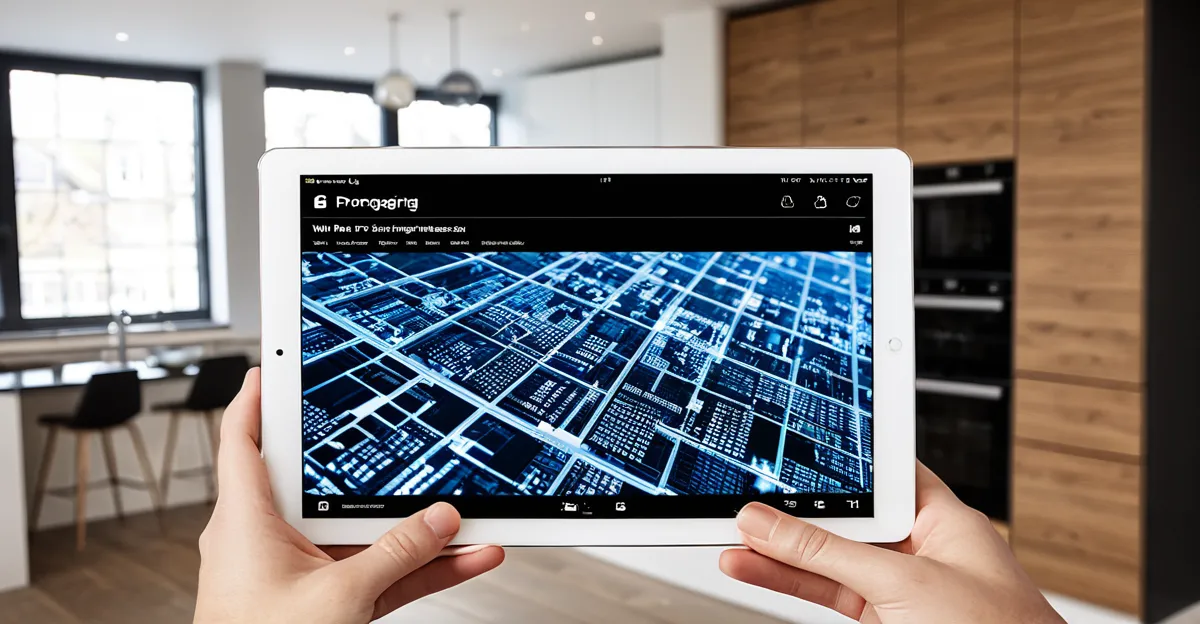Overview of Emerging Technologies Shaping the UK Real Estate Market
Emerging technologies are rapidly reshaping UK real estate trends by introducing new efficiencies and capabilities. Technologies such as artificial intelligence (AI), the Internet of Things (IoT), blockchain, and proptech solutions form the core of this innovation. Each technology contributes uniquely: AI enables predictive analytics and customer insights; IoT supports smart building infrastructures; blockchain offers secure, transparent property records; and proptech encompasses a broad range of digital tools enhancing operations and client engagement.
Adoption rates of these technologies vary across the UK property sectors. Commercial real estate, for example, increasingly employs AI for investment analytics, while residential markets integrate IoT systems for smart home functionality. The rise in proptech startups has accelerated digital transformation, pushing traditional real estate players to innovate or risk falling behind.
Also to discover : What Factors Determine the Success of Real Estate Investments in the UK?
Examples of innovation include smart buildings outfitted with IoT sensors that monitor energy use and occupant comfort in real time, increasing efficiency and sustainability. Blockchain-based platforms are being trialed to facilitate property transactions and reduce fraud, reflecting a trend toward greater security and transparency. Meanwhile, AI-driven market analysis tools help investors and developers make data-informed decisions, illustrating how innovation in the property sector is driving smarter growth in the UK marketplace.
Transforming Property Transactions: Buying and Selling
Emerging technologies such as AI in real estate and blockchain property transactions are revolutionising how property deals are conducted in the UK. By integrating AI algorithms, buyers and sellers gain access to advanced predictive analytics that streamline decision-making, identify market trends, and suggest optimal pricing strategies. Blockchain enhances this further by providing an immutable, transparent ledger of ownership and transaction history, reducing fraud and boosting trust between parties.
Also to read : How can investors maximize returns on UK real estate investments?
How exactly does blockchain impact property transactions? It creates a secure and verifiable digital record that ensures all parties can access consistent information, cutting down on paperwork and preventing title disputes. This results in a notable increase in transaction speed and a decrease in administrative costs, benefitting both buyers and sellers within the digital property marketplace environment.
Additionally, AI-powered platforms automate many traditionally manual tasks involved in transactions, such as document verification and compliance checks. This automation not only expedites the process but also reduces human error and enhances accuracy, making property purchasing and selling more efficient across the UK real estate market. As adoption grows, these technologies are setting new standards for transparency, security, and cost efficiency in the property transaction landscape.
Revolutionising Property Management and Tenant Experience
Emerging technologies like IoT in property management and smart buildings are transforming how landlords and tenants interact with real estate assets in the UK. IoT devices integrate sensors and automated controls that monitor and adjust building systems such as heating, lighting, and security in real time. This automation leads to significant cost savings by optimizing energy consumption and reducing maintenance needs while enhancing occupant comfort and safety.
How does IoT contribute to tenant experience platforms? These platforms use IoT data to deliver personalised services and seamless communication between tenants and property managers. For example, smart apps allow residents to report issues instantly, book amenities, or control home settings remotely, elevating convenience and satisfaction.
Moreover, emerging tenant experience digital platforms in the UK market are providing landlords with insights from aggregated data to improve operational decisions and increase tenant retention. By embracing these innovations, property managers can create more responsive, efficient, and enjoyable living environments, which align with evolving tenant expectations and sustainability goals.
The Evolution of Real Estate Development and Investment
Emerging technologies play a critical role in transforming real estate development and investment within the UK. Proptech investment has surged, offering innovative tools that leverage data analytics and AI to enhance site selection and investment decision-making. This data-driven approach minimizes risks by providing comprehensive insights into market conditions, projected returns, and environmental factors. Developers and investors can now assess potential projects with greater accuracy, improving confidence and optimising capital allocation.
AI-powered algorithms analyse vast datasets—ranging from demographic trends to economic indicators—helping identify lucrative opportunities and forecast market shifts. This capability advances beyond traditional methods, enabling real-time adaptation to changing market dynamics. It also supports sustainable construction by integrating environmental metrics into project planning. Proptech tools facilitate the design and development of energy-efficient buildings, ensuring compliance with sustainability standards and reducing long-term operational costs.
Moreover, the adoption of these technologies encourages collaboration among stakeholders through shared platforms, improving transparency and accelerating project timelines. The growing integration of proptech in development catalyses smarter, greener urban growth, reflecting a broader commitment to sustainability that attracts conscious investors. As a result, technology not only reshapes investment strategies but also drives innovation in how developments are conceived, built, and managed in the UK real estate sector.
Benefits, Challenges, and Future Projections
Emerging technologies offer significant benefits to the real estate market outlook, notably in boosting operational efficiency, transparency, and sustainability. Automation and data-driven insights reduce time-consuming manual tasks, enhancing customer engagement and decision accuracy. For instance, AI-powered analytics streamline market assessments, while blockchain ensures secure, tamper-proof transaction records, fostering greater trust among stakeholders. These advances collectively support more sustainable practices, aligning with the UK’s environmental goals.
However, technology adoption barriers persist, slowing widespread implementation across the UK property sector. Regulatory concerns can impede innovation, as compliance with complex rules requires careful navigation. Integration challenges arise due to legacy systems and varying technology standards, complicating seamless deployment. Additionally, cybersecurity risks pose threats to sensitive property data and digital transactions, demanding robust safeguards to protect all parties involved.
Looking ahead, experts project that the UK property future will be shaped by continued digital transformation coupled with enhanced regulatory frameworks and security protocols. As barriers diminish, adoption rates are expected to accelerate, leading to more intelligent, transparent, and sustainable real estate ecosystems. These trends underscore the pivotal role of technology in driving the long-term evolution and resilience of the UK real estate market.








